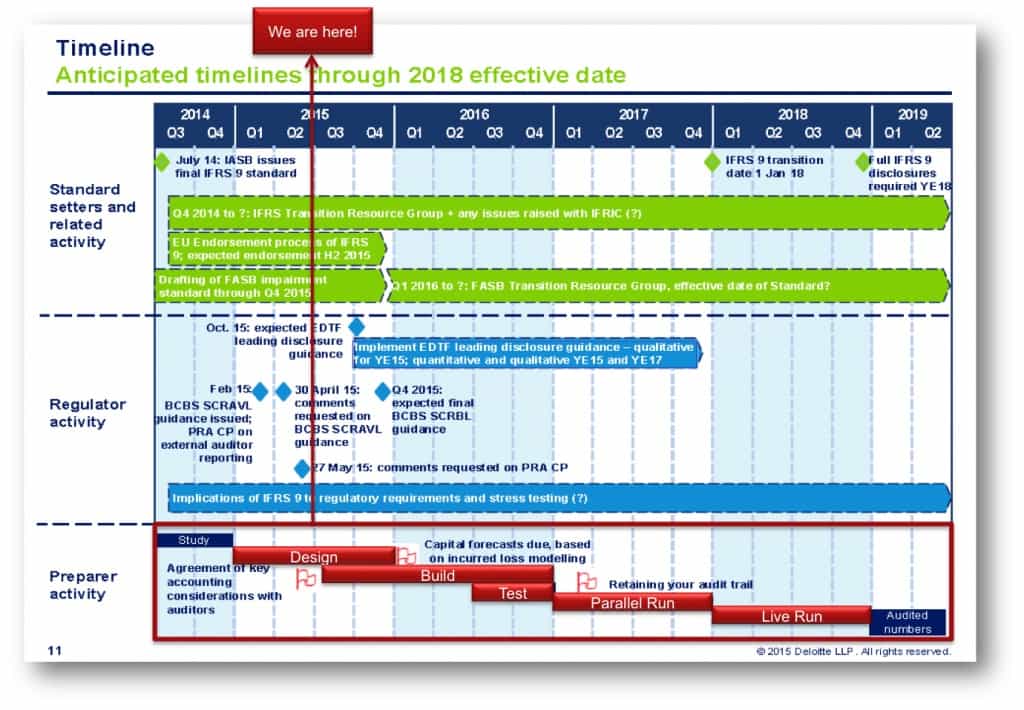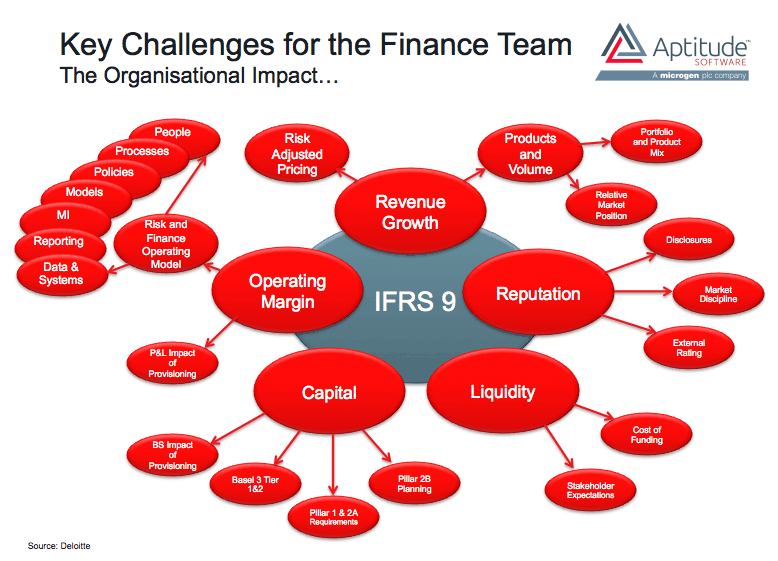Attendees from HSBC, Lloyds, Royal Bank of Scotland, Deutsche Bank, Ernst & Young (EY) and other leading banking and insurance companies came together at Eight Club in London to discuss the ways in which finance teams are affected by the new standard.
You can request a copy of the presentation slides by email to Patrick.Youngs@aptitudesoftware.com.
Whereas there were some vigorous debates about how to tackle the challenges, everyone agreed that to comply by the 2018 deadline, finance teams need to be actively designing their approach and getting ready to build solutions and systems to solve the IFRS 9 challenge.
Many banks and insurance companies have been focused on the risk modeling aspects of the standard, but it is now imperative for finance to start driving their firms’ IFRS 9 projects.
IFRS 9 affects finance in a number of ways, as we covered in an earlier blog post. This includes the need to :
- Cope with higher accounting data ‘churn’. The volume of data passing through the finance environment will simply increase significantly.
- Handle higher data transaction volumes stemming from increased volatility in model results.
- Deliver extensive additional disclosure and reporting
- Understand complex risk models in detail for both Asset Impairment and Hedging to validate assumptions and correctly interpret results and identify anomalies
- Justify results & validate classifications, valuations and provision adjustments whilst substantiating the Balance Sheet and Income Statement
- Support differences in interpretation across multiple jurisdictions, particularly during the transition period
Some of the banks in attendance have recently undergone finance transformation projects and felt that they were in better position to handle the data management flows of IFRS 9. But others discussed that streamlining some core finance processes would go hand-in-hand with their IFRS 9 projects.
Aptitude Software will be hosting a second IFRS 9 business breakfast on 3 September in London. To register, please contact us.




